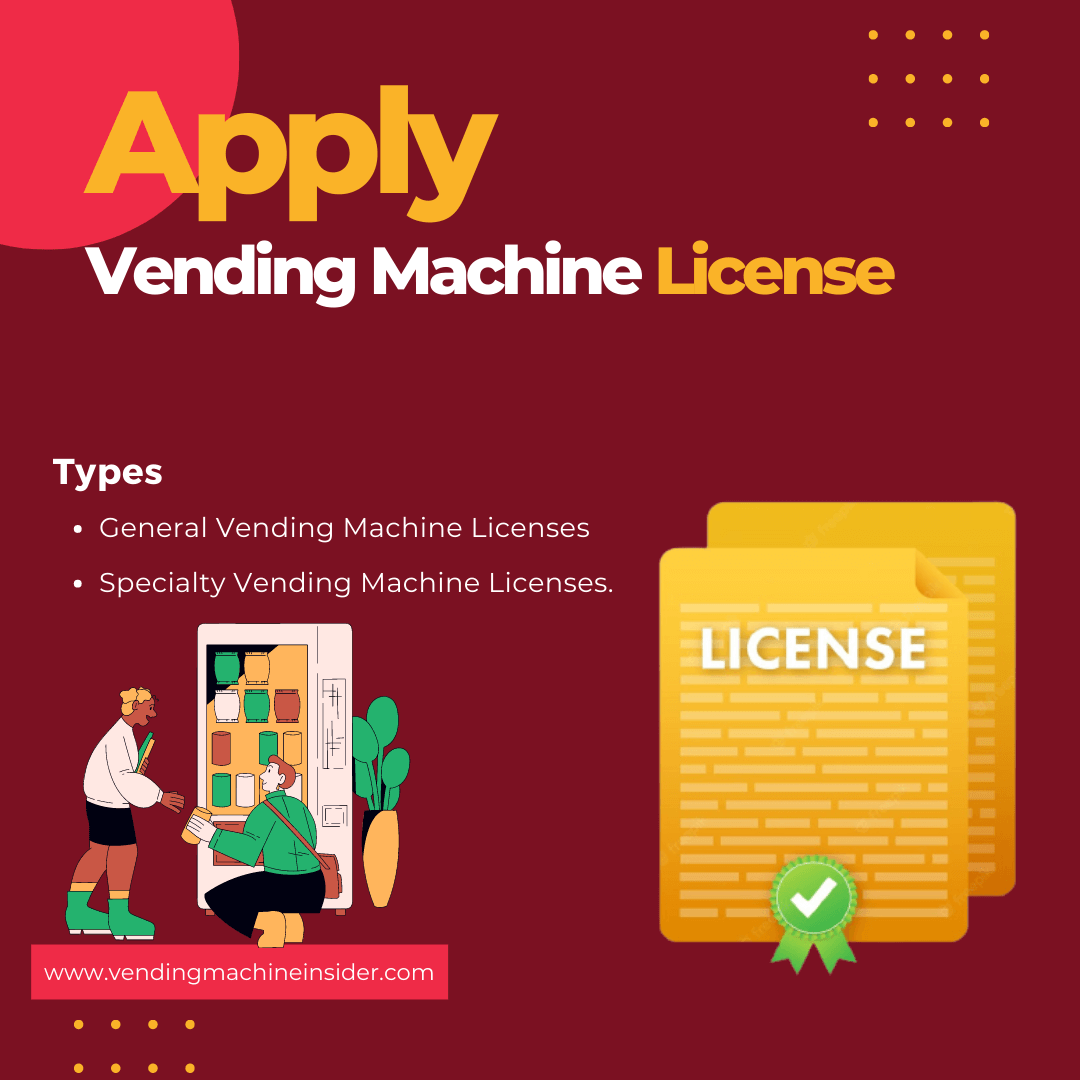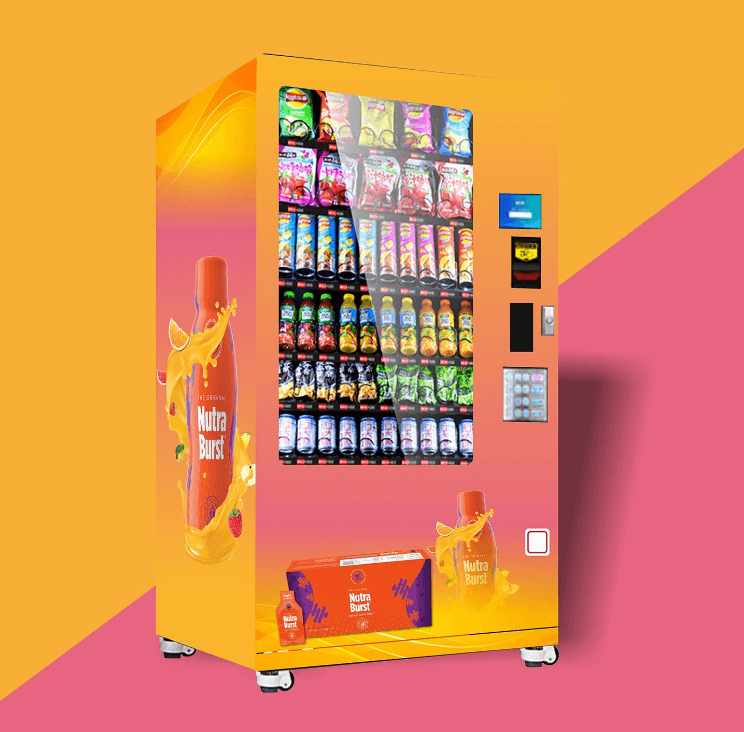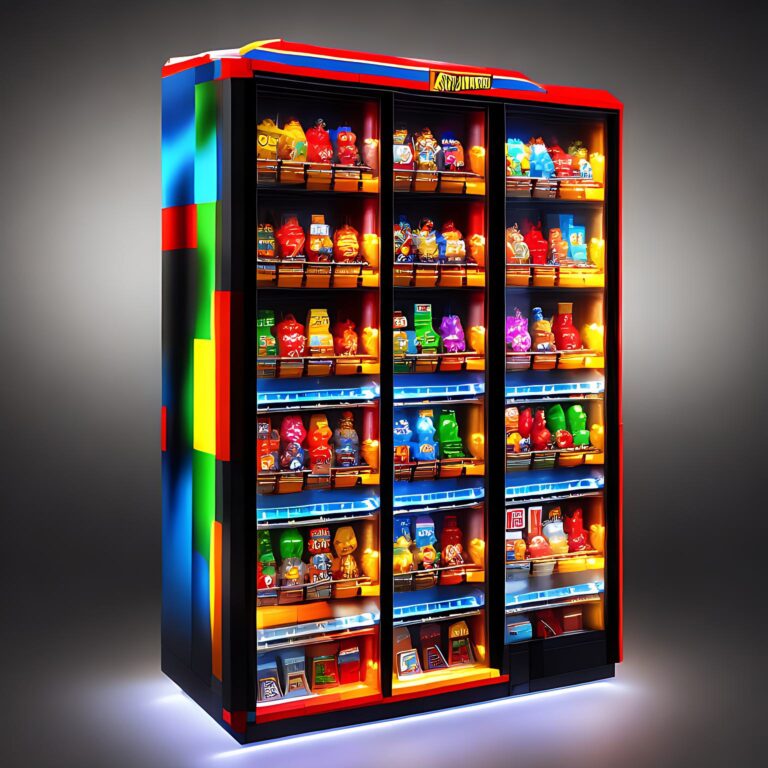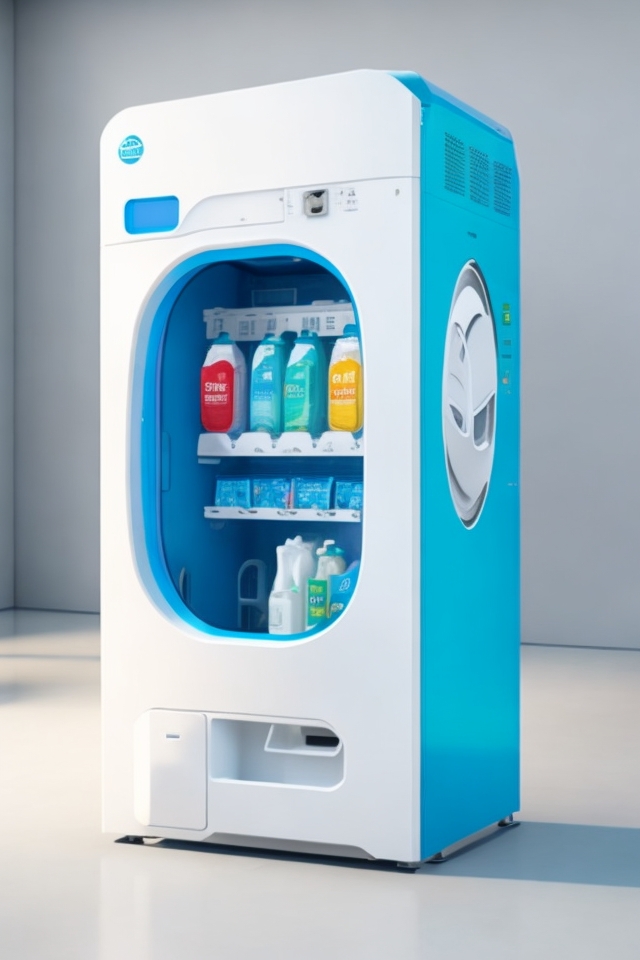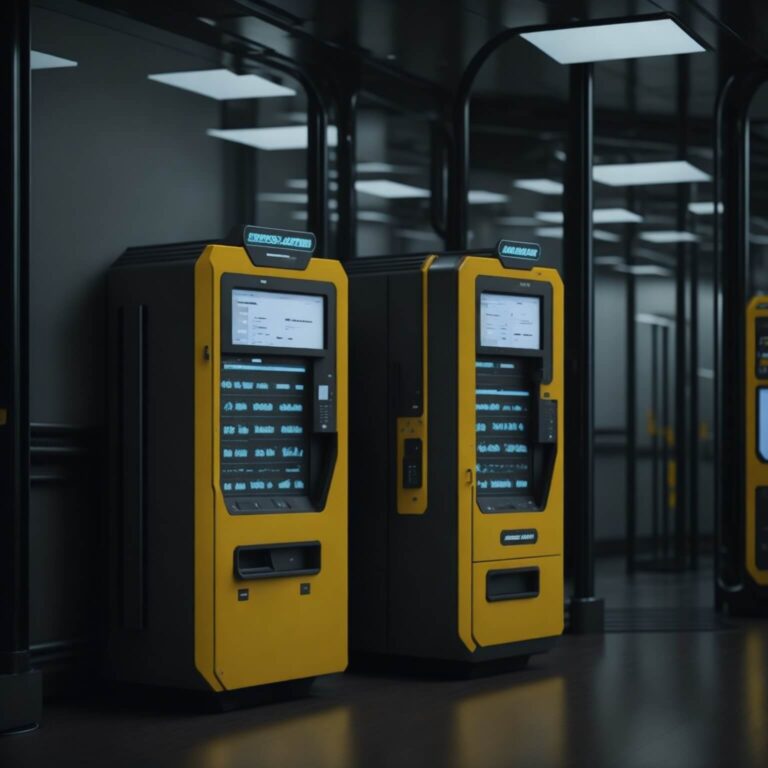Apply for Vending Machine License: Step-By-Step Tutorials
To Get a Vending Machine License: Research local regulations, fill out applications, documents, pay fees, pass inspections & obtain a license.
Are you thinking of starting a vending machine business? If so, you’ll need to familiarize yourself with the vending machine license requirements in the United States.
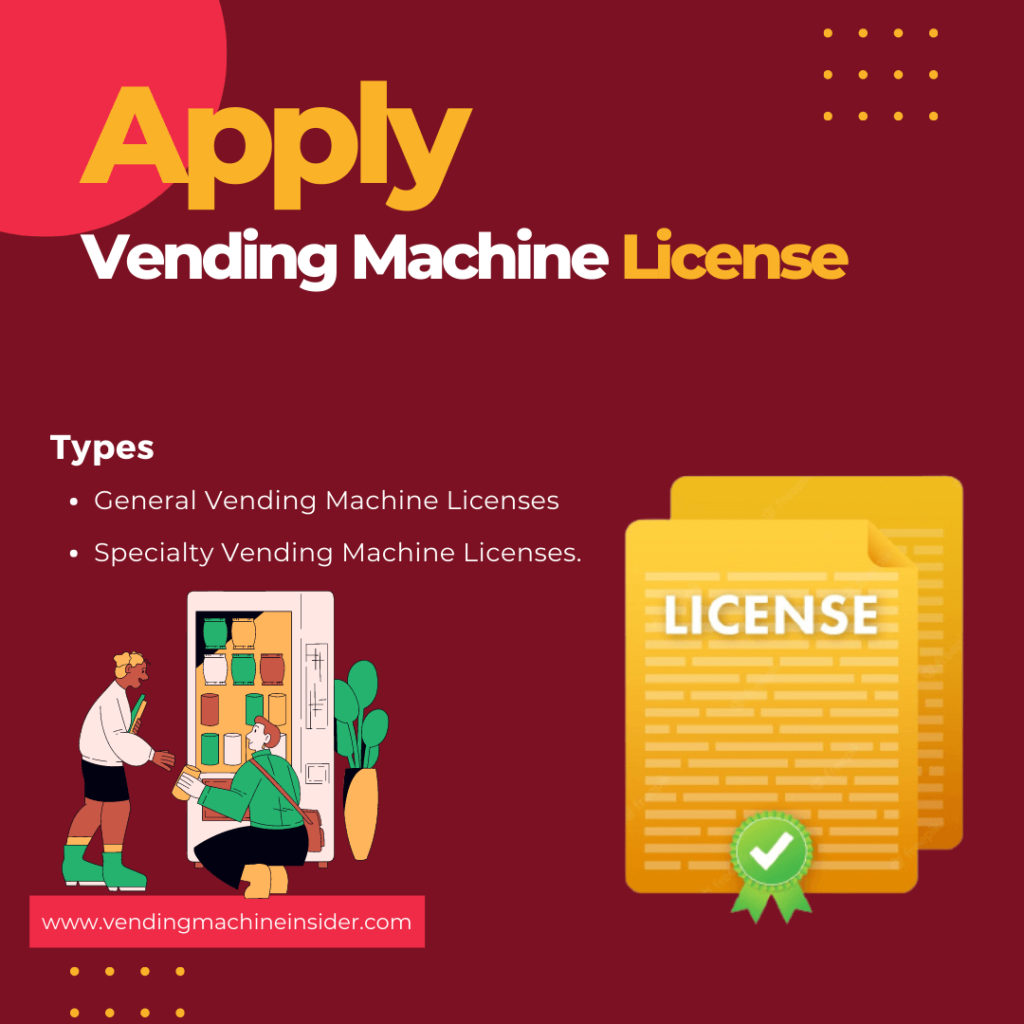
Operating a vending machine without the necessary licenses and permits can result in hefty fines and legal consequences.
Key Takeaways
- A vending machine license is required to legally operate a vending machine business in the US.
- There are different types of vending machine licenses depending on the state and the products sold.
- Obtaining and maintaining a vending machine license involves meeting specific requirements and following the application and renewal processes.
- It is a legal requirement that ensures compliance with food safety regulations, ADA accessibility requirements, and tax obligations which add credibility to your business.
What is a Vending Machine License?
A vending machine license is a permit that allows you to legally operate a vending machine in a specific location. It ensures that you are complying with all the necessary regulations and requirements, such as labeling laws and ADA compliance.
The type of license you need will depend on where you plan to operate your vending machines. You may need a federal license, a state license, and/or a city or county license.
Each state and locality has its own regulations and requirements, so it’s important to do your research and make sure you have all the necessary licenses and permits before you start operating your vending machines.
Types of Vending Machine Licenses
There are two main types of vending machine licenses:
- General Vending Machine Licenses and
- Specialty Vending Machine Licenses.
1. General Vending Machine License
| License Name | General Vending Machine License |
|---|---|
| Description | Required for vending machines selling snacks, beverages, and packaged foods. Regulated by state and local government. |
| Licensing Authority | State and local government |
| Scope | Each state where you plan to operate |
| Requirements | – Fill out an application – Provide proof of insurance – Submit business registration – Provide tax identification number – Pass safety and health inspection |
2. Specialty Vending Machine License
| License Name | Specialty Vending Machine License |
|---|---|
| Description | Required for vending machines selling cigarettes, alcohol, and lottery tickets. Regulated by state and local government. |
| Licensing Authority | State and local government |
| Scope | Each state where you plan to operate |
| Requirements | – Fill out an application – Provide proof of insurance – Submit business registration – Provide tax identification number – Pass safety and health inspection |
Why Do You Need a Vending Machine License?
Operating a vending machine business can be a profitable venture, but it also comes with legal obligations.
Here are some reasons why you need a license:
Reason 1: Legal Requirement
In the United States, most states require vending machine operators to have a license or permit to operate.
These licenses are usually issued by the state’s health department or the Department of Revenue.
Without a license, operating a business can result in fines or even legal action.
Reason 2: Food Safety Regulations
Vending machines that sell food and beverages are subject to food safety regulations.
These regulations are in place to ensure that the food and drinks sold through vending machines are safe for consumption. To comply with these regulations, operators must obtain a food service permit or license.
READ: How to Start a Vending Machine Business in Florida? License & Financing
Reason 3: ADA Compliance
The Americans with Disabilities Act (ADA) requires that vending machines be accessible to people with disabilities.
This means that vending machines must-have features such as Braille labels, audio cues, and accessible payment options. Vending machine operators must ensure that their machines are in compliance with the ADA.
Reason 4: Tax Obligations
Vending machine operators must also comply with tax obligations. They must register their business with the state and file taxes on their vending machine sales.
Failure to comply with tax obligations can result in fines and legal action.
Reason 5: Business Credibility
Having a license can also add credibility to your business. It shows that you are operating your business legally and that you take your obligations seriously.
This can help attract customers and build trust with potential business partners.
Massachusetts Food or Beverage Vending Machine License: Requirements & Fees
To apply for a license from the Food Protection Program:
| License | Details |
|---|---|
| What you need | – Complete and sign a 2-page application form (download the form above) – Provide a list of all vending machines, including their street address and location within the building – Submit labels for all products intended to be sold in Massachusetts – Display a prominently visible label or sign at each machine location, showing the operator’s license number, company name, and service telephone number |
| Fees | – Pay a $10 application fee per vending unit |
| How to apply | – Apply by mail |
| Contact | – Food Protection Program – Phone: (617) 983-6712 – TTY: (617) 624-5286 – Email: FPP.DPH@state.ma.us |
How to Get a Vending Machine License in Federal and State?
Here’s a guide with step-by-step instructions:
- Step 1: Determine the License Requirements
i) Understand that while states approve business licenses, you also need to follow federal regulations.
ii) Check whether your state requires a license to operate a vending machine. - Step 2: Obtain an Employer Identification Number (EIN)
i) Visit the IRS website and register for an EIN to establish your vending machine business.
ii) Use this unique ID number for tax purposes at the federal and state levels. - Step 3: Set Up a Limited Liability Company (LLC)
i) Choose a catchy business name and set up an LLC to protect your personal assets.
ii) Fill out the “Articles of Organization” form, file it with your secretary of state, and pay the required fee.
iii) Open a bank account dedicated to your vending machine business. - Step 4: Comply with Federal Label Laws and ADA Guidelines
i) If you operate more than 20 vending machines, adhere to federal label laws, including displaying calorie information on packages or nearby signs.
ii) Ensure your vending machines are accessible to people with disabilities to meet ADA guidelines. - Step 5: Fulfill State Requirements
i) Visit the IRS website and access your state’s business directory to find the necessary information.
ii) Look for the section related to “Doing Business in the State” or search for “vending machine license requirements (state).”
iii) Complete your state’s application and submit any applicable fees.
iv) If your state taxes vending machines, register as a sales and tax dealer separately for your county. - Step 6: Follow Additional Permit Requirements
Check if your state requires additional permits, such as a beverage license, based on its specific laws.
- Step 7: Contract Agreement for Placing Vending Machines
Consider drafting a contract with the business where you’ll place your vending machine to establish terms and conditions.
- Step 8: Maintain the Vending Machine and File Taxes
i) Adhere to your agreement with the business owner and pay them a percentage of sales if applicable.
ii) Ensure regular maintenance of the vending machine and address any issues promptly.
iii) Remove money from the machine, replenish stock, and deposit the earnings into your designated bank account.
iv) File taxes on the income generated by your vending machine business.
Note: Remember to consult local authorities and seek professional advice to ensure compliance with specific laws and regulations in your area.
READ: Vending Machine License Australia: Criteria (ABN/ACN)
Federal, State, and City/County License
The required licenses/permits depend on location and the products sold.
| Federal | State | City/County |
|---|---|---|
| Food/Beverage Service License | Vending machine licenses and permits by state | Additional licenses/permits from city/county government |
| Compliance with Americans with Disabilities Act (ADA) | Alabama Alaska Arizona Arkansas California Colorado Connecticut Delaware Florida Georgia Hawaii Idaho Illinois Indiana Iowa Kansas Kentucky Louisiana Maine Maryland Massachusetts Michigan Minnesota Mississippi Missouri Montana Nebraska Nevada New Hampshire New Jersey New Mexico New York North Carolina North Dakota Ohio Oklahoma Oregon Pennsylvania Rhode Island South Carolina South Dakota Tennessee Texas Utah Vermont Virginia Washington West Virginia Wisconsin Wyoming | Vendor’s license Local food service license Resale license/permit Vending location license fee Other licenses/permits |
Are Vending Machine Licenses Transferable?
No, vending machine licenses are not transferable, meaning you cannot use a license in one location to operate in another location.
You will need to obtain a separate license for each location where you plan to operate.
Frequently Asked Questions
The cost of a vending machine license varies range from $50 to $500 depending on the state you live in and the type of products you plan to sell.
In New York, you need to obtain a license from the Department of Health to operate a vending machine. You also need to have liability insurance and register your business with the state.
To obtain a vending license in South Carolina, you need to contact the South Carolina Department of Health and Environmental Control. They will provide you with the necessary forms and information about the licensing process. You will also need to have liability insurance and follow specific regulations regarding the type of products you can sell.
Yes, a license is required in North Carolina from the North Carolina Department of Agriculture and Consumer Services.
To obtain a vending machine license in New Jersey, you need to contact the New Jersey Department of Health. They will provide you with the necessary forms and information about the licensing process. You will also need to have liability insurance and follow specific regulations regarding the type of products you can sell.
Yes, you need a permit for vending machines in Washington State from the Washington State Department of Health.
Penalties for Operating without a Vending Machine License
If you’re considering starting a vending machine business, it’s important to know that you’ll need a license to operate legally. Operating without a license can result in civil and criminal penalties.
1. Civil Penalties
Civil penalties for operating without a vending machine license can include fines, suspension of your license, and even revocation of your license.
These penalties can vary depending on the state you’re operating in and the severity of the offense.
2. Criminal Penalties
In addition to civil penalties, operating without a vending machine license can also result in criminal penalties. This can include fines, probation, and even jail time. It’s important to note that criminal penalties are typically reserved for repeat offenders or those who engage in particularly egregious behavior.
To avoid these penalties, it’s important to obtain the proper license before operating your vending machine business.
The specific license requirements can vary depending on the state you’re operating in, so it’s important to research the requirements in your area.
